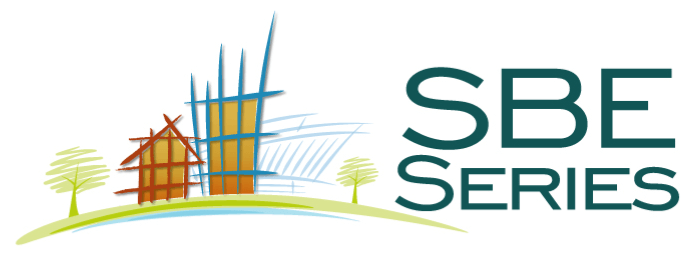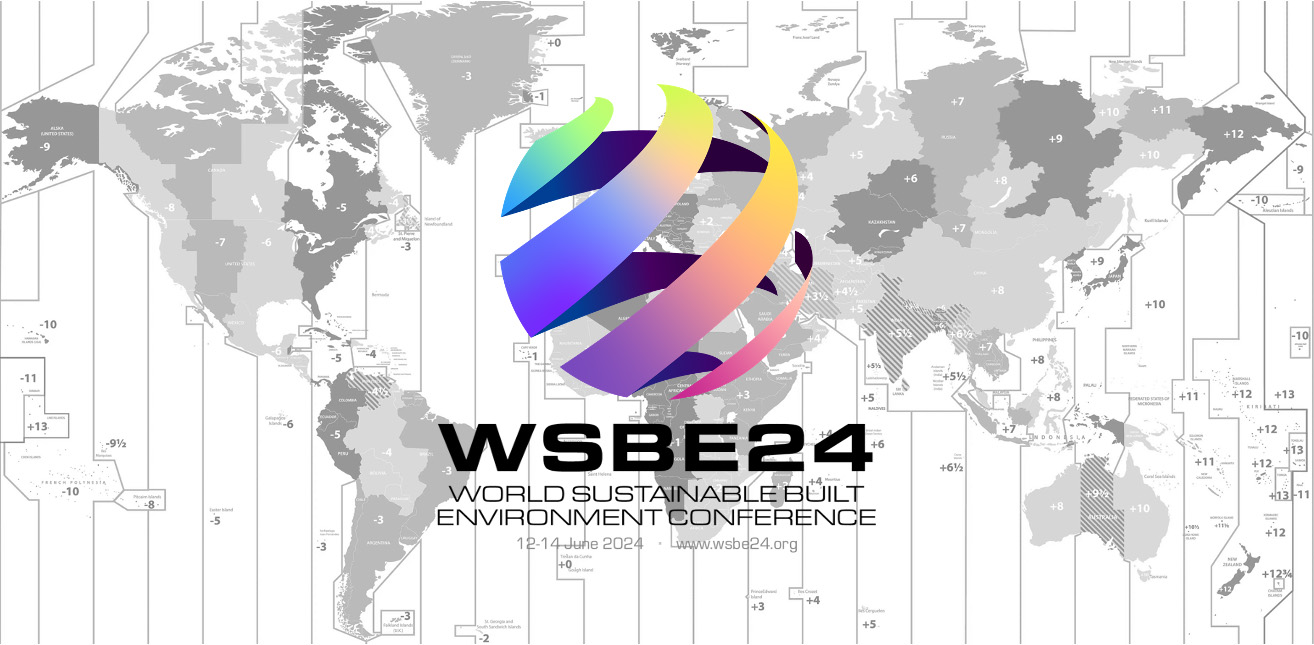The virtual WSBE24 Conference walked the talk …
demonstrating innovation pathways and partnerships in the re-organisation & delivery of one of the world’s premier sustainable built environment conferences!
The reimagined virtual WSBE24 conference was held on 12-14 June 2024, with delegates tuning in live (on those dates) and on demand. Access to the full conference program sessions and talks (all the recordings) was available on demand to pre- and post-conference delegates until 31 July 2024.
All in all, there were around 166 presentations delivered and recorded over 3 days across the following sessions:
- Five plenary keynote sessions
- Four roundtable sessions
- Two special topic sessions
- Twelve scientific technical sessions
The WSBE24 program was delivered via the pheedloop event hosting platform (pheedloop.com), see the online platform image below:
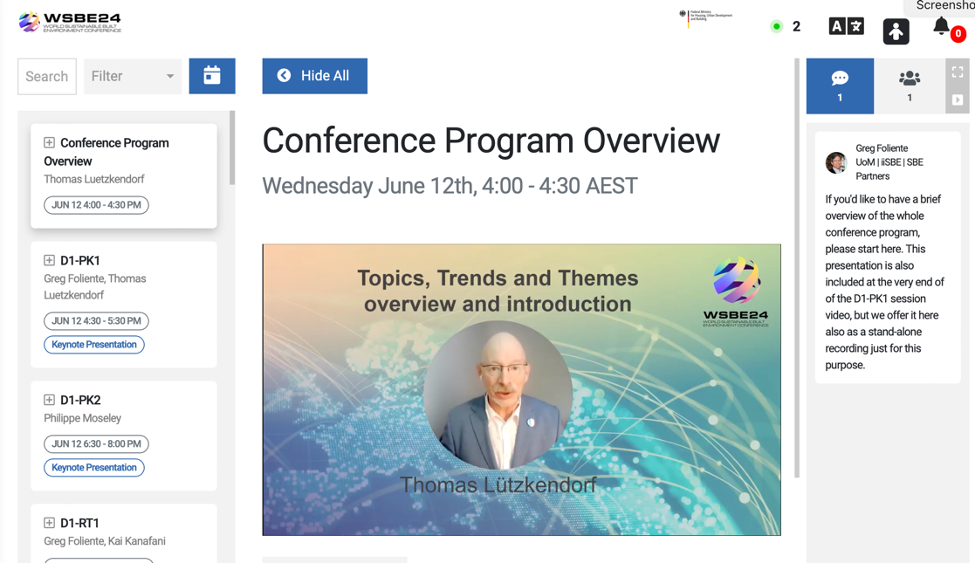
The scientific technical sessions were organised thematically to present the 118 selected papers that have been peer-reviewed and included in the WSBE24 Conference proceedings, which are available as open access here: https://bit.ly/3LQNzDY
The latest research and field developments, along with experiences, insights and viewpoints from a diverse group of experts and stakeholder representatives across the built and urban environment sectors were shared in the other sessions. The contributions and collaboration from many organisations and groups were noteworthy, noting especially global and regional developments and initiatives (especially those in Europe and the Asian and Hong Kong regions).
The key themes of the talks and discussions were summarised and synthesised in the closing plenary session and partially noted also in the Preface of the WSBE24 Proceedings. In particular, WSBE24 provided an information exchange and networking platform on the latest developments on the following topics, especially as they relate to planetary and earth system thresholds:
- Whole-life decarbonisation of the building, construction and real estate sector
- Circularity and resource flows
- Infrastructure, city units and urban sustainability
- Resilience and risks
- Socio-economic issues, especially those that relate to health and wellbeing, social equity and just transitions.
The following papers were recognised for their outstanding contributions, characterised by high degree of innovation and overall scientific quality, in the scientific technical sessions:
- The Challenge of modeling tracked electricity consumption in EPDs: An example for building materials by N Alaux, K Treyer & A Passer
- Estimating the circularity of building elements using Building Information Modelling by O Gbenga John, K Forth, S Theißen & A Borrmann
- Soil carbon sequestration in building life cycle assessment: Offsetting measure or site impact by M Roberts & P Thibaudeau
- Multi-criteria decision making for timber constructions: analysis of ceiling types using utility analysis by K Theilig, D Merk, T Blomer, W Lang, S Winter & S Birk
- Building passports in their role as building information systems – background, framework, implications by M Buchholz and T Lützkendorf
- Office environment and workers’ productivity in the era of hybrid work: analysis considering office environment and home environment by S Arata, M Sugiuchi & S Kawakubo
- A systems perspective on the interactions between urban green infrastructure and the built environment by R Reitberger, Pattnaik, L Parhizgar, C Trost, H Yazdi1, M A Rahman, S PaulNeit, T Roetzer, H Pretzsch, C Traidl-Hoffmann, F Ludwig1, A Reischl, M P Plaza Garcia & W Lang
(Please note again that these papers along with the rest of the scientific session presented papers can be found in the open access WSBE24 Conference proceedings: https://bit.ly/3LQNzDY)
A special award, the International Initiative for a Sustainable Built Environment (iiSBE) Lifetime Achievement Award was conferred in person on Nils Larsson in Berlin for “his exceptional leadership, pioneering vision, unwavering commitment and impactful initiatives that have significantly contributed to the global advancement of knowledge and practice in sustainable built environments”.
Some of his long-time colleagues and friends who were near the region and able to join celebrated the achievement and occasion with him and his wife Gillian. Finally, the location of the next World WSBE Conference in 2026 was announced to be in Melbourne, Australia, to be co-chaired by Prof Usha Iyer-Raniga and Prof Ron Wakefield of RMIT University leading the Melbourne Organising Team. Several regional SBE Conferences have also been lined up in 2025. Further details about these events will be posted soon in the SBE website and other platforms
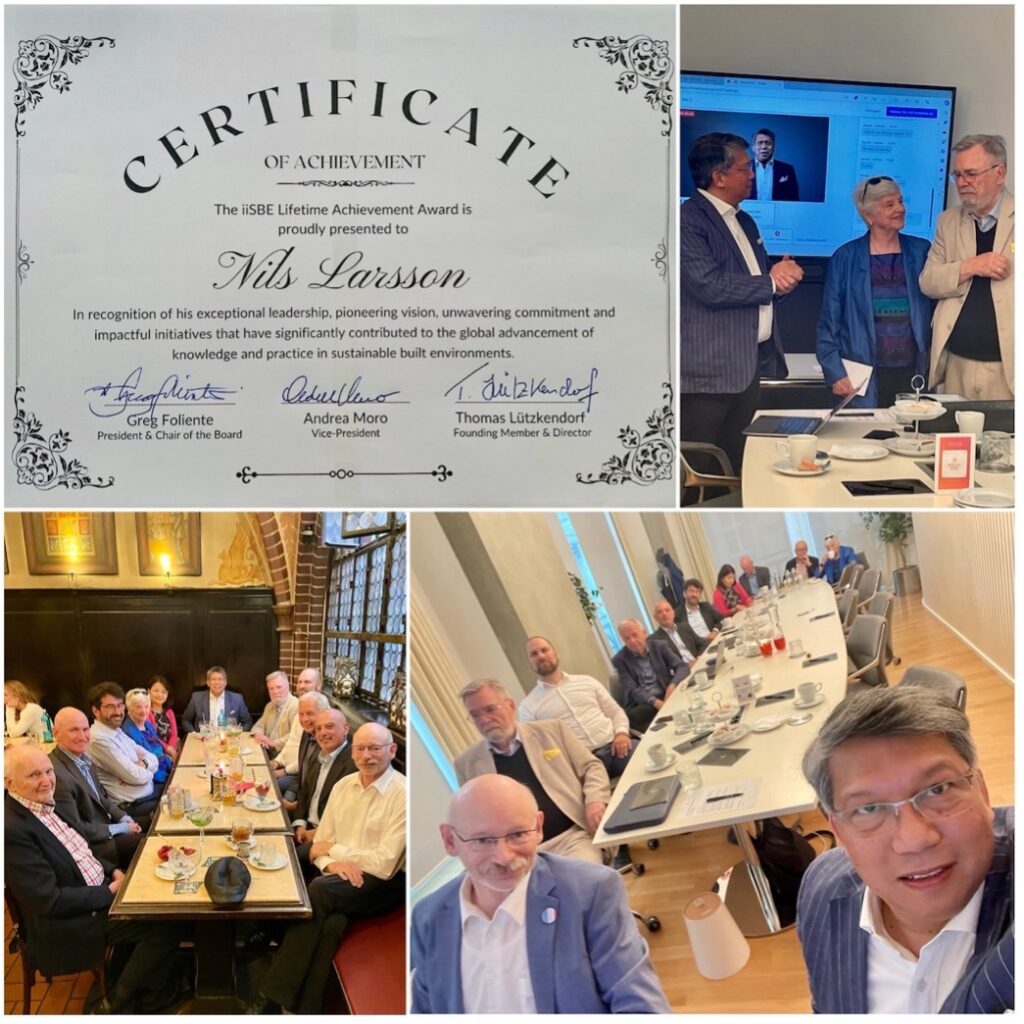
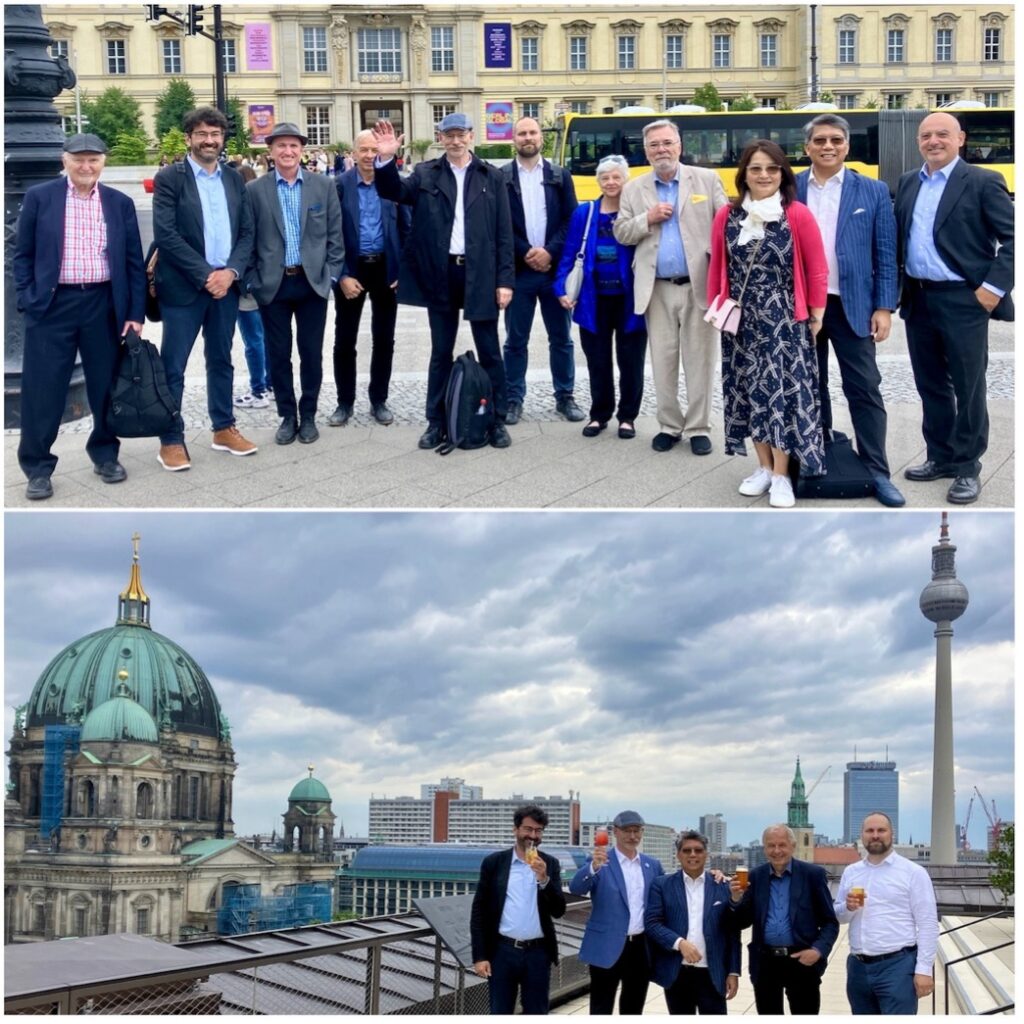
Visit wsbe24.org for more Info
